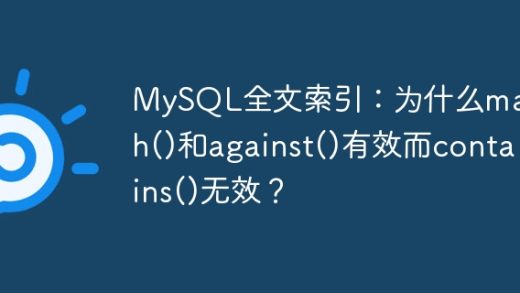当前位置: > > > > 测试Golang中的handler中调用该方法
来源:stackoverflow
2024-04-21 17:09:35
0浏览
收藏
学习Golang要努力,但是不要急!今天的这篇文章《测试Golang中的handler中调用该方法》将会介绍到等等知识点,如果你想深入学习Golang,可以关注我!我会持续更新相关文章的,希望对大家都能有所帮助!
问题内容
我正在 golang 中实现一个 api。我有一个端点,我在其中调用带有其他包的参数的方法。现在我需要检查请求中是否已调用该方法。
下面是我正在做的和我期待的类似的小场景。
我的处理程序
package mypackage
import (
"log"
"github.com/myrepo/notifier" // my another package
)
func myhandler(writer http.responsewriter, request *http.request) {
// ...
// ...
notifier.notify(4, "sdfsdf")
// ...
// ...
}
测试处理程序
func TestMyHandler(t *testing.T) {
// Here I want to
req, _ := http.NewRequest("GET", "/myendpoint", nil)
// ... Want to test that notifier.Notify is called
// ...
}
在 testmyhandler 中,我想检查 notifier.notify 是否已调用。
调查结果
我试图理解 assertnumberofcalls、func (*mock) called 和 func (*mock) methodcalled,但我不确定如何使用它们:(。
我是 golang 的新手,对此我感到非常兴奋。 如果我遗漏了任何内容,请告诉我,否则您可能需要更多信息才能更好地理解。
解决方案
这是使用依赖注入和接口的好机会。
也就是说,我们需要提取一个notifier的概念
(警告:代码未直接测试)
type notifier interface {
notify(int, string)() error
}
现在,为了避免与 notifier 库产生任何混淆,请使用本地别名。
import "github.com/myrepo/notifier" mynotifier
然后,因为您使用的库将其导出为函数,而不是在结构中,所以我们需要创建一个实现我们的接口的结构
type mynotifier struct {}
func (mn *mynotifier) notify(n int, message string) error {
return mynotifier.notify(n, message)
}
然后修改你的函数:
func myhandler(writer http.responsewriter, request *http.request, notifier notifier) {
// ...
// ...
notifier.notify(4, "sdfsdf")
// ...
// ...
}
然后在您的测试中,您现在可以自由发送间谍通知程序
type spynotifier struct {
called boolean
}
func (n *spynotifier) notify(n int, msg string) error {
n.called = true
return
}
此方法与 类似,但使用 中的 包。在这里,您创建通知程序的模拟实现,注册方法调用,并断言已使用预期参数调用该方法。
实施
package handler
import (
"net/http"
"github.com/stretchr/testify/mock"
)
// the interface for the notifier
type notifier interface {
notify(int, string) error
}
// the mock implementation of the interface above
type mocknotifier struct {
mock.mock
}
// stub the notify method to ensure it can be expected later in the test
func (mocknotifier *mocknotifier) notify(arg1 int, arg2 string) error {
args := mocknotifier.called(arg1, arg2)
return args.error(0)
}
// this handler which accepts a notifier for dependency injection
type handler struct {
notifier notifier
}
// the myhandler implementation which calls the notifier instance
func (h *handler) myhandler(writer http.responsewriter, request *http.request) {
// this is what we want to test!
h.notifier.notify(4, "sdfsdf")
}
测试
package handler_test
import (
"net/http"
"net/http/httptest"
"testing"
)
func TestMyHandler(t *testing.T) {
t.Parallel()
mockNotifier := MockNotifier{}
handler := Handler{ notifier: &mockNotifier }
// register the mock to expect a call to Notify with the given arguments and return nil as the error
mockNotifier.On("Notify", 4, "sdfsdf").Return(nil)
// setup the test arguments
request := httptest.NewRequest(http.MethodGet, "/someapi", nil)
writer := httptest.NewRecorder()
// call the handler
handler.MyHandler(writer, request)
// this is the important part!!
// this ensures that the mock Notify method was called with the correct arguments, otherwise the test will fail
mockNotifier.AssertExpectations(t)
}
终于介绍完啦!小伙伴们,这篇关于《测试Golang中的handler中调用该方法》的介绍应该让你收获多多了吧!欢迎大家收藏或分享给更多需要学习的朋友吧~公众号也会发布Golang相关知识,快来关注吧!

